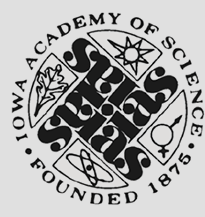Home > Iowa Academy of Science > Journals & Newsletters > Iowa Science Teachers Journal > Volume 29 > Number 3 (1992)
Document Type
Article
Abstract
Every science teacher soon discovers that the intuitions students use to solve problems are frequently at variance with the critical thinking skills required by science. 1be exercise presented here focuses on the value of making scientific hypotheses and then attempting to falsify rather than confirm them. When challenged to test a hypothesis, intuitive thinkers tend to show a confirmation bias, i.e., they will propose a test in which the results will be a positive instance of the hypothesis (Einhorn and Hogarth, 1978; Wason, 1960). Scientists, on the other hand, know that tests are specific instances that cannot inductively ''prove" the hypothesis. Instead, scientists follow the lead of Karl Popper (1959), who formulated the logic of falsification. Popper asserted that support for a hypothesis is always provisional. Hypotheses cannot ever be conclusively proven. They can, however, be disproved. A negative test in which the hypothesis is not supported should cause the scientist to discard the hypothesis and try another.
Publication Date
Winter 1992-93
Journal Title
Iowa Science Teachers Journal
Volume
29
Issue
3
First Page
8
Last Page
10
Copyright
© Copyright 1992 by the Iowa Academy of Science
Language
en
File Format
application/pdf
Recommended Citation
Lopatto, David
(1992)
"Teaching the Logic of Falsification: A Classroom Excercise,"
Iowa Science Teachers Journal: Vol. 29:
No.
3, Article 3.
Available at:
https://scholarworks.uni.edu/istj/vol29/iss3/3

